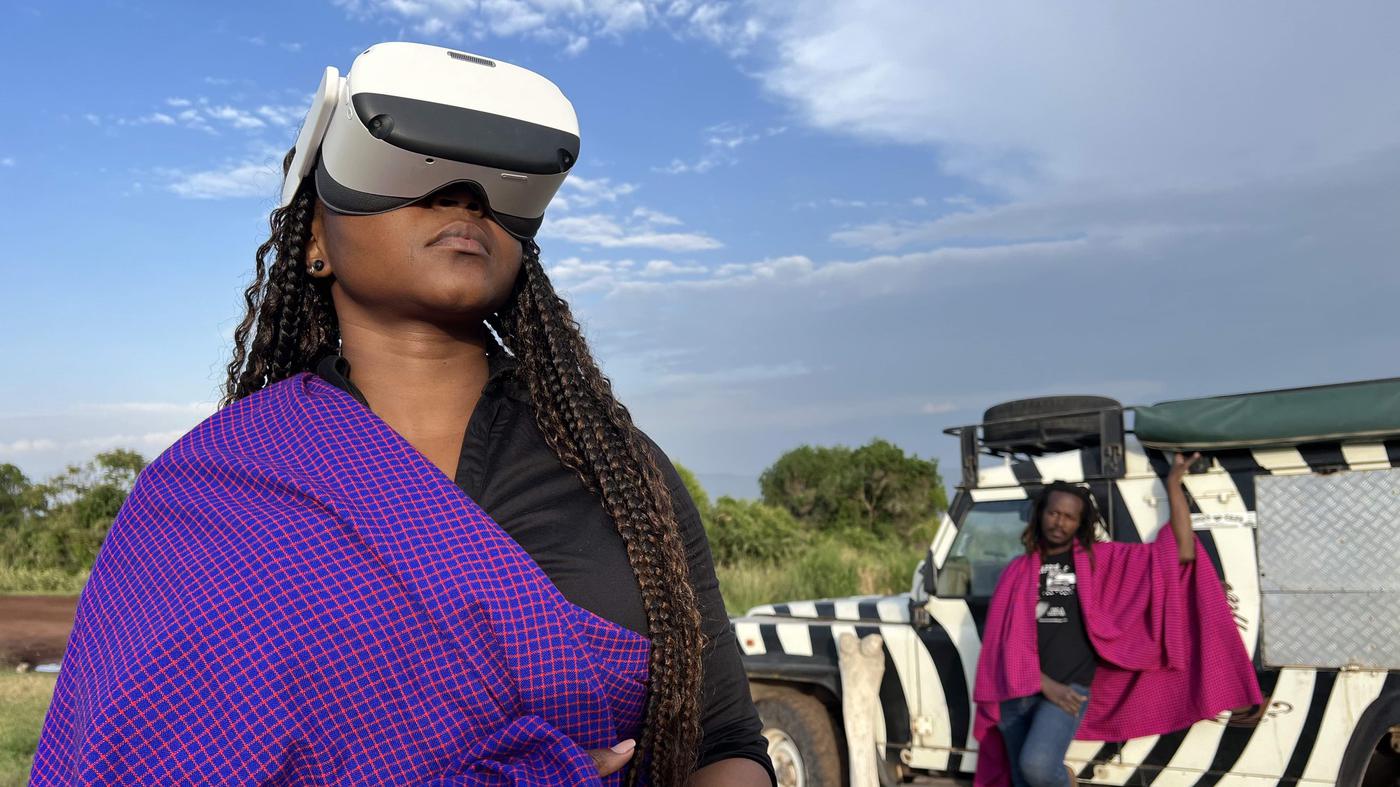 The German-Tanzanian undertaking “Final Safari” –
[ad_1]
The German-Tanzanian undertaking “Final Safari” –
[ad_1]
Antelopes, giraffes and zebras within the wild: With the assistance of 360° glasses, the viewers within the efficiency “Final Safari” is immersed in Tanzanian nationwide parks. Within the play, the theater collectives Flinn Works (Berlin) and Asedeva (Daressalaam) take a important take a look at safari tourism and the conflicts related to it.
After the premiere in Berlin, Flinn Works proceed to Frankfurt to the “Theater der Welt” competition, the place they obtain the prize of the Worldwide Theater Institute – Middle Germany (ITI). “Primarily based on particular analysis content material and incorporating the totally different views and artistic-aesthetic approaches of the contributors, Flinn Works replicate and work on present transnational matters, developments and discourses of their tasks,” says the award assertion.
Director Sophia Stepf is delighted with the award. “It’s good to play in ‘Theater der Welt’ as a result of it generates a certain quantity of consideration,” she says throughout a dialog within the café at Engelbecken.
Since 2009, Flinn Works have been producing documentary theater in shut collaboration with non-European companions. Isack Abeneko from the non-profit group Asedeva met Sophia Stepf at a theater workshop that she and her colleague Konradin Kunze had been giving in Dar es Salaam. The Goethe Institute there had invited.
When the theater makers realized that they share a typical colonial historical past, they agreed on a play concerning the Maji Maji Struggle. In Tanzania, each schoolchild is aware of one thing concerning the historical past of the rebellion towards the German colonial rulers, it's hardly recognized right here.
The collaboration with Aseveda started in 2016 with the piece “Maji Maji Flava”. This resulted in a undertaking on cranium collections in Germany, “Cranium X”. Then got here the movie and the exhibition “Mangi Mangi Stays” and as an extra museum undertaking “Marejesho”. “Objects from the depots of German museums had been photographed and introduced within the areas the place they got here from,” stories Stepf.
The theme of safari tourism has come to the fore. “We discovered it fascinating to make use of that as a hook to make clear sure colonial points that even have one thing to do with Bernhard Grzimek. He was a significant co-founder of safari tourism in northern Tanzania.” However not solely the favored zoologist and TV presenter seems right here in a important gentle. “A number of the workforce donated their first pocket cash to the WWF to avoid wasting wild animals,” says Stepf. “However the WWF reproduces the fortress conservation and co-finances it.”
An idea primarily based on the strict separation of nature and folks is known as “fortress nature conservation”. “This nature conservation idea is a colonial one,” says Stepf. “Protected areas are designated, there are particular guidelines. Indigenous peoples specifically are now not allowed to stay there, however need to resettle.”
Stepf doesn’t deny that poaching is a giant drawback. However she criticizes the truth that animal welfare is changing into more and more militarized. The journalist Simone Schlindwein additionally stories on human rights violations within the neighborhood of the nationwide parks in her ebook “The Inexperienced Struggle”; she suggested Flinn Works on the undertaking.
For “Final Safari” the German-Tanzanian workforce went on safari collectively: the Germans enthusiastically filmed the animals with their cell phones, the Tanzanian performers watched them filming. You could have additionally researched northern Tanzania, the place a battle is coming to a head. 1000's of Maasai are mentioned to be forcibly resettled due to the deliberate growth of the character reserve. However they're combating towards their expulsion.
In “Final Safari” a Maasai skilled may even be on stage and describe the present state of affairs in a brief lecture. The three performers play safari guides. “They are going to fan out the discourse and take the place of the Tanzanian authorities, typically that of the rangers and draw a line.” The purpose is once more to query the prevailing narratives. “It’s about capturing voices that no person else hears and that we shouldn’t hear.”
How German tax cash is concerned within the battle can be mentioned. The federal authorities funds the administration of human-wildlife-conflicts with 6 million euros, however nobody is aware of precisely what the cash is spent on. “The subject is presently within the German media and there are additionally questions from politicians,” stories Sophia Stepf. When requested what drives her, she replies: “The truth that folks can take a look at the world so in a different way and our Western, Eurocentric perspective may be very slim, that’s a basic expertise for me.”
[ad_2]




0 comments